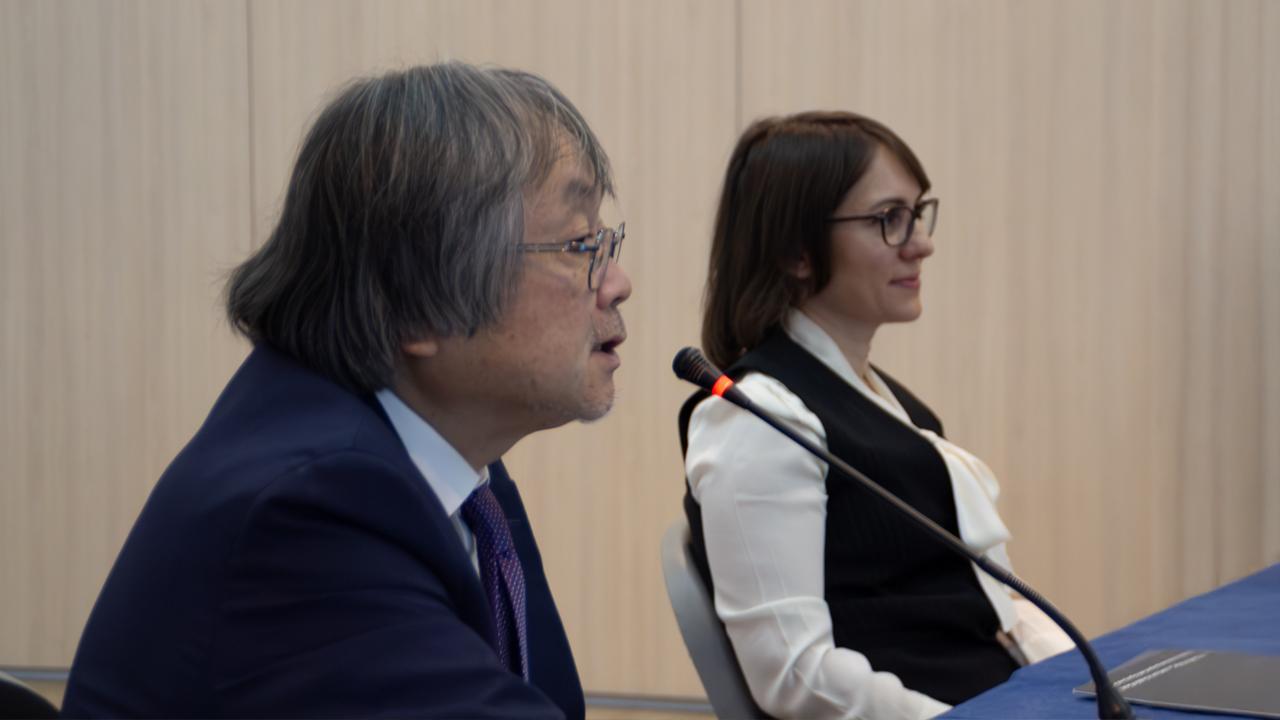
TEPAV hosted a meeting titled “The Evolving Global Aid Architecture and Türkiye’s Role,” where World Bank Vice President for Development Finance Akihiko Nishio discussed emerging trends in global development assistance and highlighted Türkiye’s potential role in this evolving landscape.
The Economic Policy Research Foundation of Turkey (TEPAV) hosted Akihiko (Aki) Nishio, Vice President for Development Finance (DFi) at the World Bank, on Tuesday, October 28th, 2025. The event, titled “The Evolving Global Aid Architecture and Türkiye’s Role,” brought together representatives from public institutions, the private sector, civil society organizations, and academia.
The meeting was moderated by Dr. Burcu Aydın, Director of TEPAV’s Center for Economic and Structural Policies. In his opening remarks, Nishio drew attention to the crucial role of the International Development Association (IDA), the World Bank’s largest source of concessional finance, in global development efforts.
Highlighting IDA’s hybrid financial model, which combines grants with low-interest credits, the World Bank Vice President explained that “one dollar of donor funding translates into four dollars of development finance,” underscoring the leverage effect of IDA’s model in helping 78 low-income countries achieve their development goals.
Vice President Nishio noted that the global aid architecture has undergone significant transformation in recent years, shaped by smaller average grant sizes, a rising number of donors, limited use of financial leverage, and increasing aid flows that bypass national budgets. The Vice President of the World Bank noted that these trends have accelerated structural shifts across the international development landscape.
“Türkiye can play an important role in strengthening global solidarity”
The World Bank Vice President for Development Finance emphasized that development finance goes beyond the provision of financial resources; it also helps shape institutional capacity, social resilience and the transformative power of the private sector. The Vice President identified strengthening global solidarity, ensuring debt sustainability, and improving access to climate finance as key priorities for the coming period, adding that “Türkiye can play an important bridging role on these issues, both regionally and globally.”
“IDA’s role is more critical than ever”
Despite current challenges, Nishio reaffirmed that the IDA remains committed to its mission of “ending poverty on a livable planet” by developing innovative financial mechanisms. He also underlined the growing importance of middle-income countries like Türkiye in supporting global development financing and contributing to collective solutions.
The discussion also covered Türkiye’s position within the IDA framework, opportunities for regional cooperation, and the potential of the private sector in sustainable development finance. The meeting concluded with an interactive Q&A session, where participants raised questions spanning from China’s role in global aid and Africa’s development needs to the implications of the climate crisis, each addressed through Nishio’s insights and reflections.




